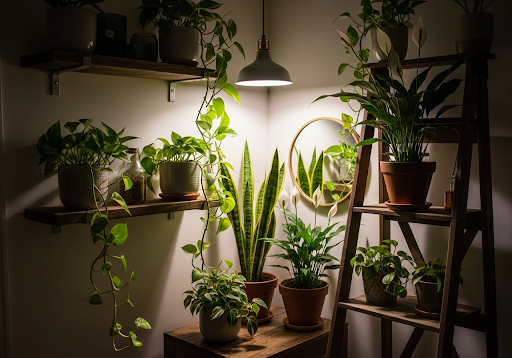Table of Contents
ToggleEssential oils and pure oils go hand in hand for many types of products, especially for skin and hair care. They also have health benefits beyond just beauty, improving the health of many with many of the compounds found in these oils.
While both provide exceptional benefits, it is critical to know the differences between essential oils and pure oils for safety and maximizing benefits. In this essential oil vs pure oil article, we will list the major differences between these two distinct types of oils.
Read on to learn their differences so you can easily tell the two apart when you have both in your hands.
What Is Essential Oil?
Essential oils are highly concentrated plant extracts that have the natural aroma, flavor, and properties of the source plant. They are typically extracted through steam distillation or cold pressing using the aromatic parts of plants, such as flowers, leaves, and barks.
While the name can be quite misleading, essential oils aren’t exactly “oils” in the traditional sense. They are highly potent and require dilution before you can apply them to the skin. Otherwise, an essential oil is likely to cause irritations that can be quite severe. Due to this, essential oils must be mixed with a pure oil before topical use, which brings us to the next one.
What Is Pure Oil?
Pure oils, commonly referred to as carrier oils, are plant extracts obtained from the fatty parts of the plants, such as seeds, nuts, or kernels. Due to the plant parts they use, pure oils contain good fats, vitamins, and nutrients that nourish and moisturize the skin.
Pure oils typically have a mild or neutral scent. Even though pure oils can be used on their own, they are often used to dilute essential oils, which makes essential oils safe for topical applications while getting the benefits of both. That’s why many pure oils go hand in hand with essential oils, they work magically when used together.
Essential Oil vs Pure Oil: 4 Major Differences
While the above can give you a general idea of the differences essential oils and pure oils have, here are the four major differences to note about these two different types of oils. Knowing these differences will ensure safe use of both, allowing you to get their benefits without any downsides.
1) Source
As mentioned, the source of the plant material is what matters the most. While essential oils use aromatic parts of plants, like flowers, leaves, and barks, pure oils typically use nuts, seeds, and kernels of plants. For example, lavender oil is an essential oil as it uses the flowering part, whereas almond is a pure oil as it is made from the seed.
2) Composition
Essential oils are mostly made up of volatile aromatic compounds, while pure oils contain lots of fats, known as lipids. Due to their differences in composition, essential oils have a strong scent, whereas pure oils are milder or neutral.
This composition difference also means essential oils penetrate skin quickly, which is why they should be used with pure oils, as they are absorbed slowly by the skin.
3) Use Cases
Both essential oils and pure oils are typically used for skin and hair care. You can mix a pure oil with an essential oil to get the best out of both worlds for skin or hair care. In addition to these, essential oils are also used for aromatherapy, which has various benefits, including easing anxiety and stress and boosting mood and focus. Since pure oils aren’t concentrated and don’t have a strong scent, they can’t be used for aromatherapy.
4) Potency
Last but not least, the potency of essential oils and pure oils is vastly different. Even a single drop of essential oil goes a long way – it is one of the reasons why essential oils generally need dilution. Pure oils aren’t as potent, so they can be applied to the skin directly, which helps with moisturizing and creating a protective layer.
Essential Oil vs Pure Oil: Conclusion
Our essential oil vs pure oil article covered every major difference between these two natural products, which is critical before use as incorrect use can cause severe irritations.
If you’re considering using them on a regular basis, you might want to purchase wholesale essential oils to save shipping costs and have enough in stock. Just make sure not to purchase more than you need, as both essential oils and pure oils expire eventually. We recommend not keeping any more than you would use in six months or so.






